Health
Summer meltdowns: Here’s how extreme heat can affect your mood and mental health
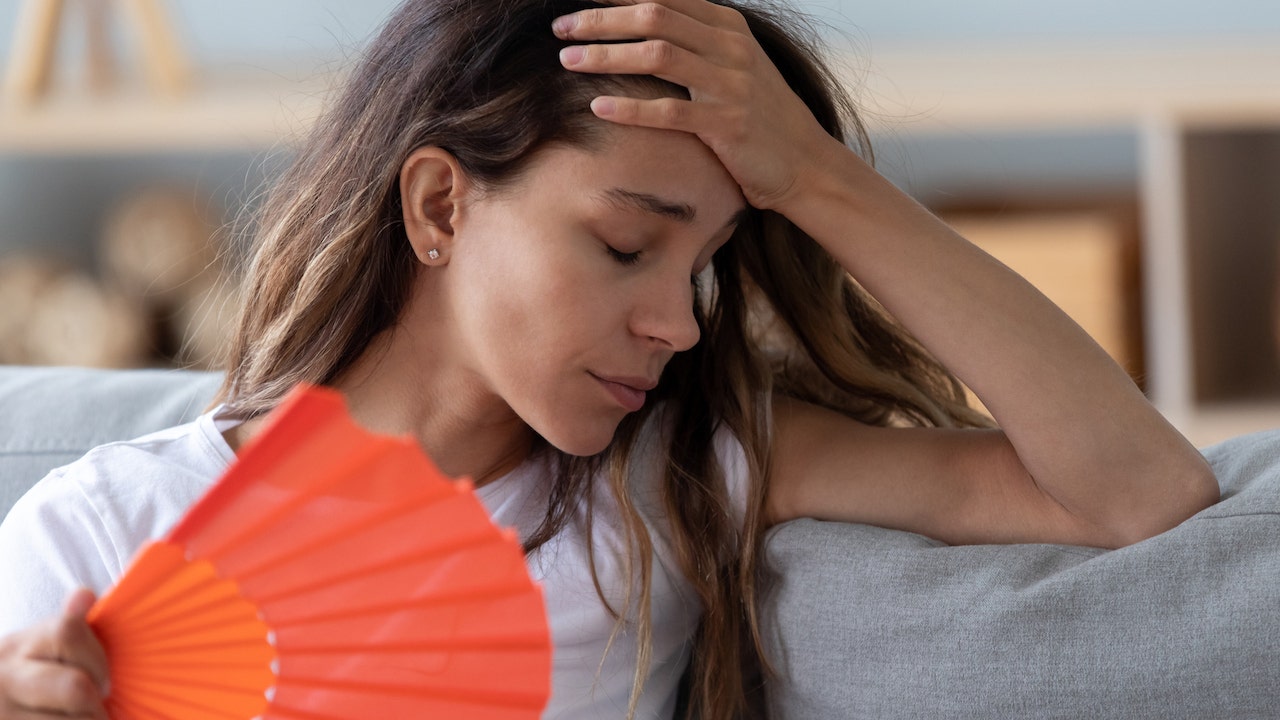
Summer’s soaring temps bring the well-known risks of heat exhaustion and heat stroke — but they can also take their toll on people’s moods and mental health, experts say.
Higher temperatures have been linked to an uptick in emergency room visits for mental health conditions and diagnoses, as found in a 2022 study published in JAMA Psychiatry.
The Boston University study looked at nearly 3.5 million adult ER visits between 2010 and 2019.
“Our work showed that emergency department visits to treat mental health increased as ambient temperatures increased, for adults across the U.S. with commercial health insurance, for a wide range of illnesses,” lead study author Amruta Nori-Sarma, assistant professor of environmental health at Boston University, told Fox News Digital.
HOW TO PREVENT AND TREAT ILLNESSES THAT ARE MOST COMMON DURING THE SUMMER MONTHS
While the researchers didn’t dive into the specifics of how heat impacts the brain, Nori-Sarma identified heat as a stressor that exacerbates people’s underlying ill health.
Dr. Joseph Galasso, CEO at Baker Street Behavioral Health in New Jersey, was not involved in the study but said its findings are in line with what he would expect.
Extreme heat has been shown to have a significant impact on mood and behavior, leading to increases in aggression and mood instability, a doctor said. (iStock)
“We do know that extreme heat has a significant impact on mood and behavior,” he told Fox News Digital. “In particular, we see increases in aggression and mood instability.”
He also said, “In terms of our behavior, we see both externalized aggression and hostility toward others, as well as internalized aggression, which can take the form of suicide attempts and self-harm.”
How extreme heat affects the brain
When people are uncomfortable, Galasso said, it typically changes their mood and behavior.
“Extreme heat can lower, across the population, our general ability to be resilient and to maintain our psychological defense system, because it is detecting an increase in stress,” he explained.
One hypothesis is that exposure to extreme heat may interfere with levels of serotonin, a neurotransmitter that is linked to mood and emotion regulation, though more research is needed to confirm this, Galasso said.
HOT SUMMER SAFETY: HOW TO KEEP YOUR PETS HEALTHY IN EXTREME TEMPERATURES THIS SEASON
“What we do know is that exposure to extreme heat affects our ‘emotional gatekeepers,’ or the systems that keep our psychological resources and defenses intact,” he explained.
One major factor could be that rising temperatures tend to disrupt sleep, the doctor said, which leads people to feel irritable and agitated.
“Further, people report greater difficulty with memory, attention, concentration and reaction time,” Galasso said. “When there is pressure on the internal systems that regulate mood and frustration, symptoms occur that make us feel less effective in our daily lives.”
“Exposure to extreme heat affects our ‘emotional gatekeepers,’ or the systems that keep our psychological resources and defenses intact.”
“For those with preexisting mental health conditions, this can often be the precursor to an increase in pathology,” he added.
Those who have mood instability, a history of substance abuse, or a severe or persistent mental illness are most vulnerable, Galasso warned — along with people in lower socioeconomic classes who may not have access to air conditioning and/or temperature-controlled environments.
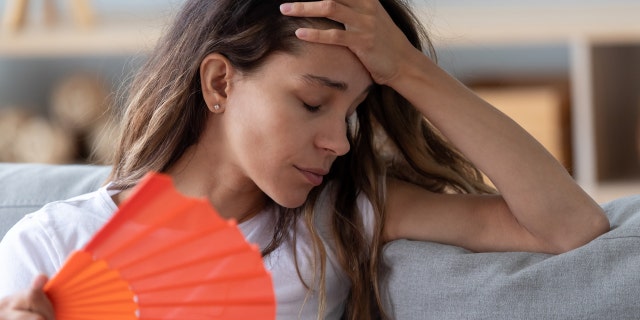
Summer’s soaring temperatures can take a toll on people’s moods and mental health, studies have shown. (iStock)
Additional studies have found that periods of extreme heat also tend to trigger a surge in violent activity.
A 2021 study published in The Lancet found a link between rising temperatures and violent crimes, including homicides, sex offenses and assaults.
BE WELL: STAY HYDRATED IN THE SUMMER HEAT WITH THESE SMART TIPS
One theory is that “hot weather induces interpersonal violence by increasing discomfort, frustration, impulsivity and aggression,” wrote the researchers from the School of Public Health and Preventive Medicine at Monash University in Melbourne.
A second theory was that temperature increases led to changes in people’s routine activities, which then sparked interpersonal conflicts.
How to keep a cool head in the heat
To prevent heat-induced meltdowns, Galasso emphasized the need for the public — particularly those who are most vulnerable — to have access to cooling centers, water and medical care.
“As mental health providers, we need to provide education to our clients and communities to help mitigate some of the negative effects of extreme heat,” he said.

Higher temperatures have been linked to an uptick in emergency room visits for mental health conditions and diagnoses. (REUTERS/Mike Blake)
“And it is important for first responders to understand that they may see an increase in violence, domestic violence, aggression and heat-related issues,” Galasso added.
People who are taking psychotropic medications also need to know that some types of drugs impair the body’s ability to regulate temperature, he said.
CLICK HERE TO SIGN UP FOR OUR HEALTH NEWSLETTER
Many cities across the U.S. have emergency preparedness programs to help vulnerable people cope with the heat, pointed out study author Nori-Sarma.
The National Center for Healthy Housing’s website lists cooling centers by state.
“One of the best ways we have to cope with heat waves is to rely on our social networks — friends checking in on friends and loved ones, neighbors keeping an eye on neighbors — to make sure that everyone who may be impacted by extreme heat is cared for,” Nori-Sarma added.

Health
Big Mac Salad For Weight Loss: How to Get The Benefis | Woman's World
Use left and right arrow keys to navigate between menu items.
Use escape to exit the menu.
Sign Up
Create a free account to access exclusive content, play games, solve puzzles, test your pop-culture knowledge and receive special offers.
Already have an account? Login
Health
Most Americans hit the snooze button every morning — here’s why it could be bad for your health
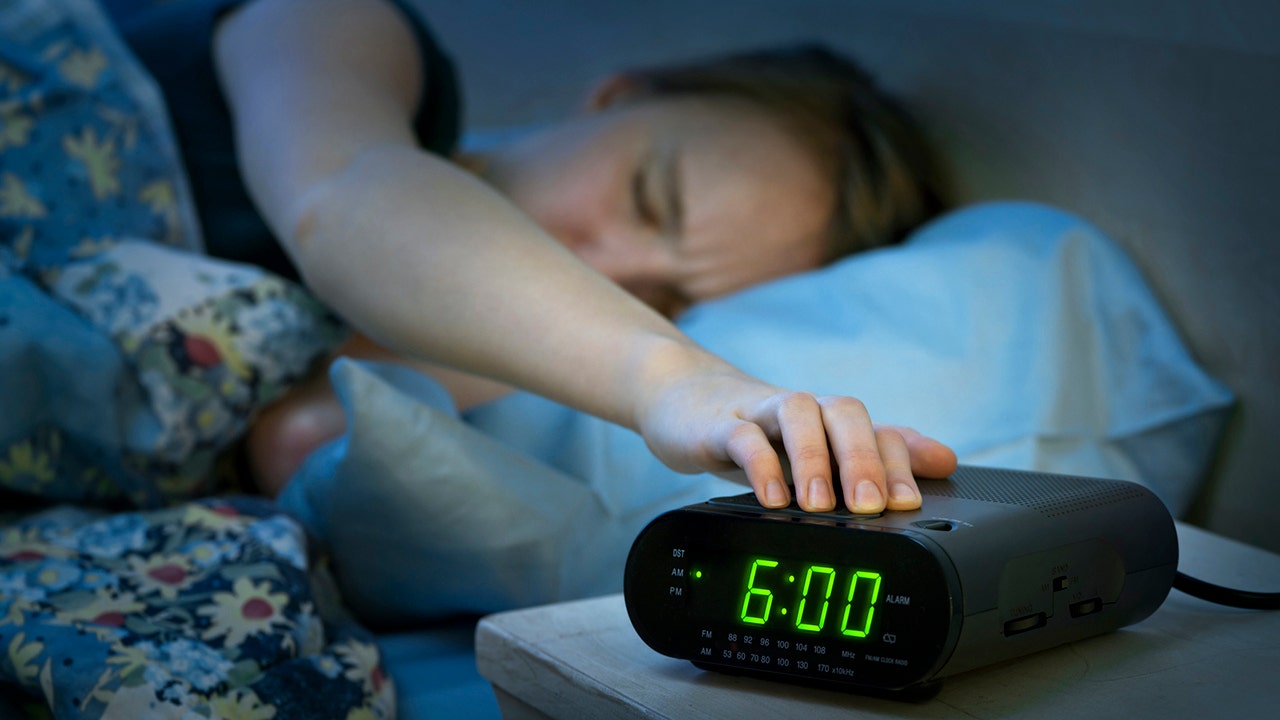
More than half of sleep sessions end with the snooze button, with people sneaking in an extra 11 minutes on average, a new study reveals — but experts say it may not be a good idea.
Researchers from Mass General Brigham analyzed data from the Sleep Cycle app, which included sleep habits from more than 21,000 people globally.
Among the more than three million sleep sessions tracked, nearly 56% ended with the snooze button.
MOST SLEEP-DEPRIVED CITIES IN US REVEALED IN REPORT: WHERE DOES YOURS RANK?
The heaviest users of the snooze button — who used it for more than 80% of the mornings included in the study — slept an average of 20 extra minutes.
These heaviest snoozers were also shown to have “more erratic sleep schedules” than those who used the snooze button less often, the researchers found.
More than half of sleep sessions end with the snooze button, with people sneaking in an extra 11 minutes on average, a new study reveals. (iStock)
The snooze button was more likely to be used on weekdays and less so on Saturdays and Sundays.
The findings were published in the journal Scientific Reports.
The problem with snoozing
“Unfortunately, the snooze alarm disrupts some of the most important stages of sleep,” said lead author Rebecca Robbins, PhD, in the Division of Sleep and Circadian Disorders Medicine at Brigham and Women’s Hospital, in a press release.
“The hours just before waking are rich in rapid eye movement sleep. Hitting the snooze alarm will interrupt these critical stages of sleep and typically only offer light sleep in between snooze alarms.”
“Snoozing feels good, but effectively results in less sleep.”
It’s common for people to feel grogginess upon waking up, called “sleep inertia,” which can make the snooze button tempting, according to Dr. David Kuhlmann, spokesperson for the American Academy of Sleep Medicine and medical director of sleep medicine at Bothwell Regional Health Center in Sedalia, Missouri.
“While hitting snooze may make it easier for some to wake up, it’s not recommended,” Kuhlmann, who wasn’t involved in the study, told Fox News Digital. “Falling back to sleep for just a few extra minutes disrupts your sleep cycle, which can impact your mood and energy throughout the day.”
HERE’S WHY 90% OF AMERICANS DON’T SLEEP THROUGH THE NIGHT, ACCORDING TO EXPERT
Alex Dimitriu, MD, a board-certified psychiatrist and sleep medicine doctor and founder of Menlo Park Psychiatry & Sleep Medicine in California, agreed that hitting the snooze button is disruptive to one’s rest.
“Snoozing feels good, but effectively results in less sleep,” Dimitriu, who also did not participate in the research, told Fox News Digital.

“Unfortunately, the snooze alarm disrupts some of the most important stages of sleep,” said the lead study author. (iStock)
“Snoozing specifically impacts REM sleep or dream sleep, which happens most in the morning hours.”
REM (rapid eye movement) sleep has wide-ranging benefits, according to the expert — including that it helps regulate emotions by repeating past events and preparing for the future.
“There is evidence that our brains get emotionally calibrated during REM sleep — so it matters a lot,” Dimitriu added.
Tips for skipping the snooze
“When the alarm goes off, we should feel ready to start our day,” Dr. Stephen Carstensen, a dentist and sleep expert in Washington, told Fox News Digital.
It’s as simple as breaking the habit, noted Cartensen, who wasn’t part of the MGB study.
HEAT EXPOSURE LINKED TO BETTER SLEEP, EXPERTS SAY — HERE’S WHY
“Habits are changed by determination, which is always easy to say, hard to do,” he said. “Just don’t do it, and soon the habit is gone.”
If someone feels like they need those extra minutes, however, the expert suggests thinking about what might need to change.
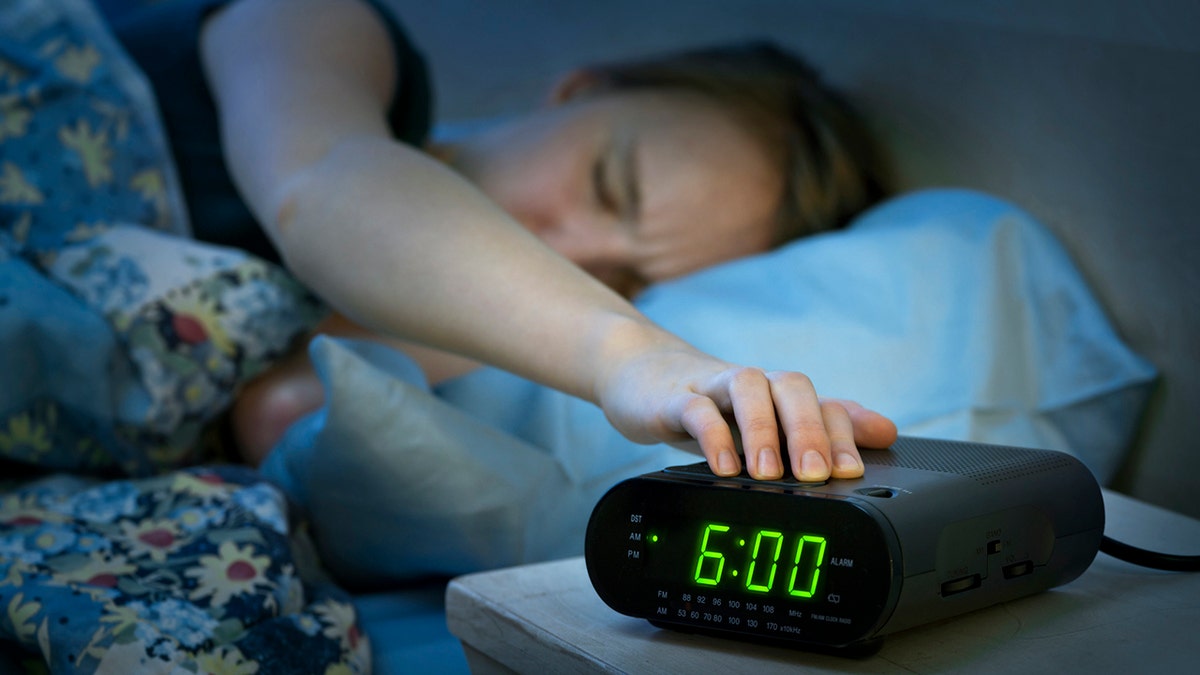
To optimize sleep and feel rested the next day, experts recommend setting the alarm for the latest possible time and getting out of bed when it goes off the first time. (iStock)
“Maybe you aren’t going to bed early enough, or sleep quality suffers from snoring or other breathing problems,” he said. “You might have another sleep problem or a bed partner who keeps you from getting good sleep.”
“The issue isn’t really the snooze button, but why you need it.”
To optimize sleep and feel rested the next day, experts recommend setting the alarm for the latest possible time and getting out of bed when it goes off the first time.
“Most people use the snooze button either because they go to bed too late or because an early-morning wake time does not line up with their natural sleep cycle,” Dimitriu said.
“The issue isn’t really the snooze button, but why you need it.”
In both cases, he recommends adhering to a consistent sleep schedule that you can stick to, with “regular(ish)” bedtimes and wake times.
“It also helps to put down shiny, colorful screens full of interesting information in the hour before bed,” Dimitriu added. “You need to slow down to get sleepy, or you won’t get sleepy.”
CLICK HERE TO SIGN UP FOR OUR HEALTH NEWSLETTER
“I tell my patients ‘tech off at 10’ — dimming the lights and reading a book helps a lot.”
Kuhlmann recommends that people keep their phones across the room at night to force them to get out of bed when the alarm goes off.
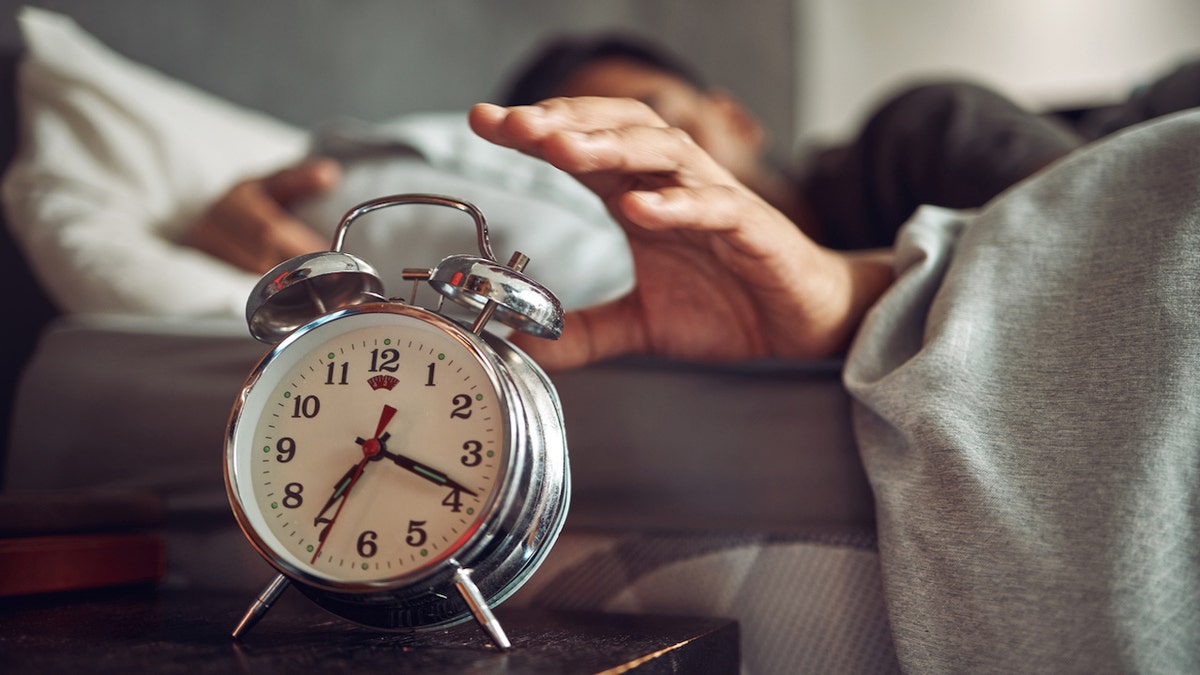
If someone is still overly reliant on the snooze button even after improving sleep habits, it may be a sign of unrefreshing sleep from an underlying disorder, an expert warned. (iStock)
“If you’re hitting snooze regularly, it could be a sign that you aren’t getting enough or good-quality sleep,” he noted. “To improve your sleep, prioritize healthy sleep habits, like keeping a consistent bedtime, avoiding large meals and alcohol before bed, and aiming for at least seven or more hours of sleep per night.”
For more Health articles, visit www.foxnews.com/health
If someone is still overly reliant on the snooze button even after improving sleep habits, it may be a sign of unrefreshing sleep from an underlying disorder, Kuhlmann warned.
“In that case, speak with your healthcare provider, who may refer you to an AASM-accredited sleep center for treatment.”
Health
How to Eat Eggs for Weight Loss, According to Doctors

Use left and right arrow keys to navigate between menu items.
Use escape to exit the menu.
Sign Up
Create a free account to access exclusive content, play games, solve puzzles, test your pop-culture knowledge and receive special offers.
Already have an account? Login
-

 Education1 week ago
Education1 week agoHarvard Letter Points to ‘Common Ground’ With Trump Administration
-

 Culture1 week ago
Culture1 week agoBook Review: ‘Original Sin,’ by Jake Tapper and Alex Thompson
-

 News1 week ago
News1 week agoAs Harvard Battles Trump, Its President Will Take a 25% Pay Cut
-

 News1 week ago
News1 week agoAustin Welcomed Elon Musk. Now It’s Weird (in a New Way).
-

 Culture1 week ago
Culture1 week agoBook Review: ‘Death Is Our Business,’ by John Lechner; ‘Putin’s Sledgehammer,’ by Candace Rondeaux
-

 Education1 week ago
Education1 week agoVideo: Opinion | We Study Fascism, and We’re Leaving the U.S.
-

 News1 week ago
News1 week agoMenendez Brothers Resentenced to Life With Parole, Paving Way for Freedom
-

 Politics1 week ago
Politics1 week agoRepublicans say they're 'out of the loop' on Trump's $400M Qatari plane deal















